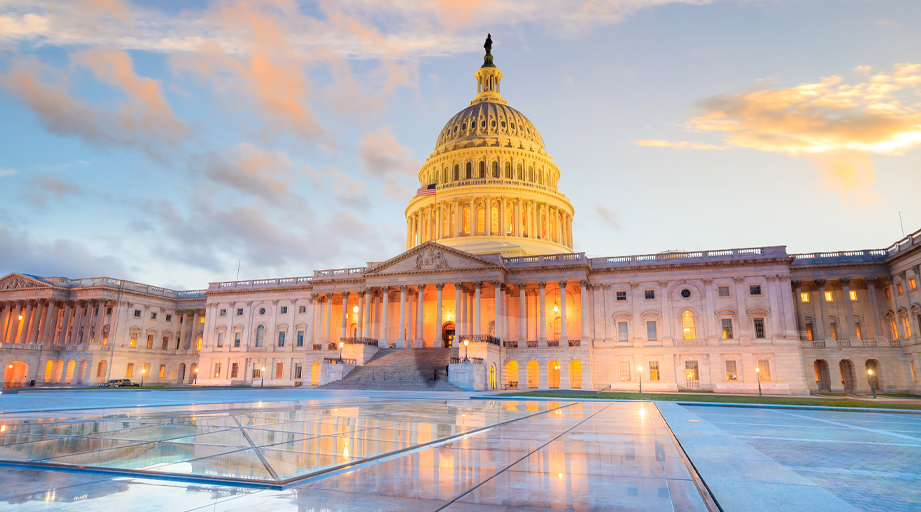
[Updated 14 February 2019]
The opening testimony at the January 29 hearing of the House Committee on Oversight and Reform underscored that high prescription drug prices aren’t measured in dollars alone.
Antroinette Worsham of Ohio told committee members that after her daughter Antavia turned 21 and lost eligibility for a state-administered medical assistance program, she could no longer pay for her insulin and started rationing it. Antavia had been diagnosed with type 1 diabetes when she was 16 years old.
Antavia died at the age of 22 of diabetic acidosis — and her mother now worries about the future of her younger daughter, who also has type 1 diabetes.
“I fear the same thing will happen to Antanique when she turns 21,” Worsham said.
The hearing, “Examining the Actions of Drug Companies in Raising Prescription Drug Prices,” was the committee’s first of the year and tackled a subject that Chairman Elijah E. Cummings of Maryland has called a top priority.
“This is a matter of life and death, and we have a duty to act now,” Cummings said.
Catherine Alicia Georges, National Volunteer President for AARP, told committee members that high drug prices adversely affect seniors.
“Our members consistently tell us they cannot afford the medications they need and are forced to make difficult choices as a result,” she said. Georges reminded committee members that Medicare Part D enrollees “take an average of 4.5 prescriptions per month,” and over two-thirds have multiple chronic conditions.
According to AARP, the average price of widely used brand-name drugs increased more than four times the rate of inflation in 2017, and, for 94 percent of common brand-name drugs, prices doubled between 2005 and 2017.
Georges said current prescription drug price trends “are simply not sustainable.”
High drug prices also affect hospitals. ASHP, the American Hospital Association, and the Federation of American Hospitals recently released a report on trends in drug spending and drug product shortages. According to the report, average total drug spending per hospital admission increased 18.5 percent between fiscal years 2015 and 2017.
ASHP submitted an official statement to the committee in support of policies that increase generic competition. The statement also asked Congress to limit direct and indirect remuneration fees and to preserve the 340B Drug Pricing Program.
Cummings mentioned ASHP’s statement in his opening remarks and asked that it be entered into the record for the hearing.
During the hearing, witnesses identified possible remedies to high drug prices, including patent reform, shortening of marketing exclusivity periods, and allowing the federal government to negotiate prices for medications covered under the Medicare Part D prescription drug benefit.
Current law prohibits the Medicare program from entering into such negotiations.
Gerard Anderson, Professor of Health Policy and Management at Johns Hopkins University in Baltimore, said it would be challenging for the Medicare program to negotiate prices for all Part D-covered drugs. But he said negotiation could be done on a smaller scale, should the law permit.
“What you would have to do is ... start out negotiating the prices for a limited set of drugs. And the ones that I would start on are the ones where Medicare pays 80 percent of the cost, which would be most expensive drugs,” he said. “If that works, then expand it beyond that amount.”
Medicare is responsible for paying 80 percent of drug costs under Part D’s catastrophic coverage provision. This occurs when the beneficiary’s out-of-pocket costs reach the annual maximum, which is $5,100 for 2019.
The hearing was part of a larger campaign by the committee to rein in drug prices. On January 14, Cummings announced that he had contacted a dozen drug companies to request information about their pricing practices.
A similar hearing on drug prices was held February 12 by the House Committee on Ways and Means, and ASHP submitted a statement for the record. Witnesses at the hearing spoke about issues similar to those discussed during the January 29 hearing, including the high cost of insulin.
Alan Reuther, Legislative Consultant for the UAW Retiree Medical Benefits Trust, said his organization paid $2 billion last year for prescription medications, including more than $230 million for insulin products.
He said the trust’s insulin costs rose by 51 percent from 2013 to 2018, despite a 4 percent decline in the use of insulins during that period.
Reuther urged committee members to take actions that would regulate the price of insulin and increase generic competition in general.
He also asked that Congress pass the Creating and Restoring Equal Access to Equivalent Samples (CREATES) Act.
ASHP supports the CREATES Act, which would prevent manufacturers of brand-name drugs from withholding samples of those products from drug makers that want to produce generic versions of the medications.
ASHP also serves on the steering committee of the Campaign for Sustainable Rx Pricing, a coalition that advocates for market-based reforms that make prescription drugs more affordable for Americans.
[This news story appears in the April 15, 2019, issue of AJHP.]








